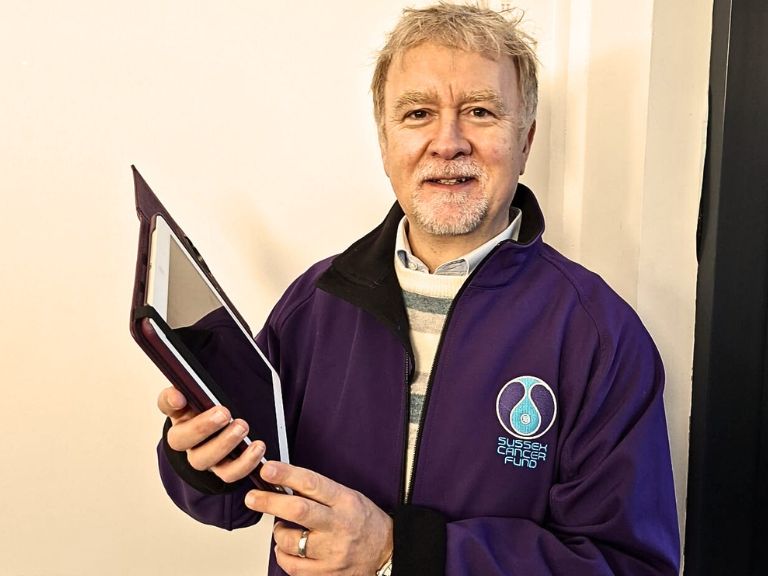 Sussex Cancer Fund recently purchased of 2 ultrasound bladder scanners for use at The Sussex Cancer Centre, 1 for Preston Park Radiotherapy Centre and 1 for The Royal Sussex County site.
Sussex Cancer Fund recently purchased of 2 ultrasound bladder scanners for use at The Sussex Cancer Centre, 1 for Preston Park Radiotherapy Centre and 1 for The Royal Sussex County site.
Bladder scanners are used in Radiotherapy departments to help establish the volume of fluid patients have in their bladder, for preparation purposes during treatment. At the moment, patients arrive for their planning CT scan and are asked to drink a measured volume of water and then wait 40 mins for the water to make its way to the bladder. Depending on how hydrated a patient is, the water may not all make its way to the bladder if it required in other parts of the body. If this is the case the bladder can be very small in size when seen on the CT scan. A small bladder size can lead to an increased dose to the patient’s bowel and potentially bladder too. Currently, there is no way of finding out the size of a patient’s bladder until they have been scanned and exposed to this dose of radiation. If patients are able to have an ultrasound scan before the CT scan, the volume of fluid in the bladder can be established prior to this so that unnecessary scans can be avoided.
From past experience when working in other radiotherapy departments they are most useful at the CT (planning) scan stage. The Radiographers carry out an ultrasound scan to establish the volume of fluid in the bladder prior to the CT scan being taken. If there is an insufficient volume of fluid in the bladder the patient is not scanned at the stage and will be asked to drink more water. They will therefore avoid any unnecessary exposure. The bladder scanners can also help to avoid the patient being scanned with an overly full bladder, which can present difficulties in holding this each day prior to treatment; particularly if/when side effects begin occur. A comfortably full bladder can help to reduce the dose to both the bladder itself and the small bowel.
If there are concerns about patient becoming/being in urinary retention whilst on treatment, the bladder scanner can help to identify this in its early stages; by taking a scan after a patient has attempted to empty their bladder, an ultrasound scan can be performed to see if there is any water retaining in the bladder.
The scanners purchased by the Sussex Cancer Fund will make a huge difference to patients’ treatments and their experiences during treatment .
If you would like to help Sussex Cancer Fund purchase more essential equipment please donate here


